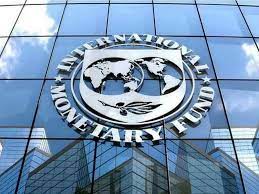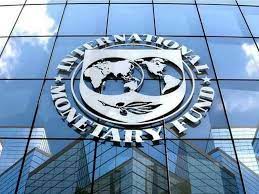
Gita Gopinath, the first deputy managing director of the International Monetary Fund, warned world policymakers on Friday that the trade-offs that global central bankers currently face – between jobs, inflation, and growth – are likely to get worse in the coming years as the world struggles to right job markets and supply chains, and price pressures continue.
Gopinath stated that top central banks will need to be consistently tough despite the potential costs given the risks of inflation becoming embedded.
"Central banks must act decisively to bring inflation back to target and anchor inflation expectations," she told the Jackson Hole central banking conference in Wyoming.
Her comments are a part of what has evolved into a rapid reset in how central bankers approach their work, with many now dealing for the first time in their careers with rapid price increases.
The use of a "hot" economy to create jobs and the presumption that supply shocks would pass no longer seem like sound policy choices, according to Gopinath.
"The pandemic and (Ukraine) war have served as 'stress tests' for countries' monetary policy frameworks," Gopinath said.
Historically speaking, if "The pandemic and war suggest that temporary supply shocks may have broader and more persistent effects on inflation when an economy is very strong or the shocks are very large. This is assuming that businesses would adjust to supply issues. In these circumstances, central banks might need to act more forcefully to control inflation "She spoke.
Similar to this, Gopinath stated that attempts to use loose monetary policy to achieve greater job gains "creates significant inflation risk."
"Inflation pressures may become much more intense as unemployment declines to low levels, and key sectors face supply constraints. Difficulties measuring economic slack make it hard to tell exactly when inflation will hit, but the risks get significantly higher in a hot economy."
Gopinath's comments highlight the urgent effort still being made by central banks and other economic institutions around the world to comprehend the current inflationary outbreak and ascertain whether it is a result of long-term changes to the economy brought on by the pandemic and the Russian invasion of Ukraine.
For instance, the Fed changed its monetary policy just two years ago to place more emphasis on job growth and a willingness to take more risk with higher inflation.
That strategy was based on a tenuous correlation between inflation and employment that seemed to hold true in the years prior to the pandemic but may no longer be the case.
It's possible that the supply of workers has become more sluggish and inflationary, similar to other parts of the supply chain.
"The number of workers, especially in high contact sectors, may become much harder to predict in light of pandemic changes," Gopinath said. "Goods and services provided through global value chains could become more expensive or unavailable if countries severely restrict trade."
(Source:www.usnews.com)
Gopinath stated that top central banks will need to be consistently tough despite the potential costs given the risks of inflation becoming embedded.
"Central banks must act decisively to bring inflation back to target and anchor inflation expectations," she told the Jackson Hole central banking conference in Wyoming.
Her comments are a part of what has evolved into a rapid reset in how central bankers approach their work, with many now dealing for the first time in their careers with rapid price increases.
The use of a "hot" economy to create jobs and the presumption that supply shocks would pass no longer seem like sound policy choices, according to Gopinath.
"The pandemic and (Ukraine) war have served as 'stress tests' for countries' monetary policy frameworks," Gopinath said.
Historically speaking, if "The pandemic and war suggest that temporary supply shocks may have broader and more persistent effects on inflation when an economy is very strong or the shocks are very large. This is assuming that businesses would adjust to supply issues. In these circumstances, central banks might need to act more forcefully to control inflation "She spoke.
Similar to this, Gopinath stated that attempts to use loose monetary policy to achieve greater job gains "creates significant inflation risk."
"Inflation pressures may become much more intense as unemployment declines to low levels, and key sectors face supply constraints. Difficulties measuring economic slack make it hard to tell exactly when inflation will hit, but the risks get significantly higher in a hot economy."
Gopinath's comments highlight the urgent effort still being made by central banks and other economic institutions around the world to comprehend the current inflationary outbreak and ascertain whether it is a result of long-term changes to the economy brought on by the pandemic and the Russian invasion of Ukraine.
For instance, the Fed changed its monetary policy just two years ago to place more emphasis on job growth and a willingness to take more risk with higher inflation.
That strategy was based on a tenuous correlation between inflation and employment that seemed to hold true in the years prior to the pandemic but may no longer be the case.
It's possible that the supply of workers has become more sluggish and inflationary, similar to other parts of the supply chain.
"The number of workers, especially in high contact sectors, may become much harder to predict in light of pandemic changes," Gopinath said. "Goods and services provided through global value chains could become more expensive or unavailable if countries severely restrict trade."
(Source:www.usnews.com)





